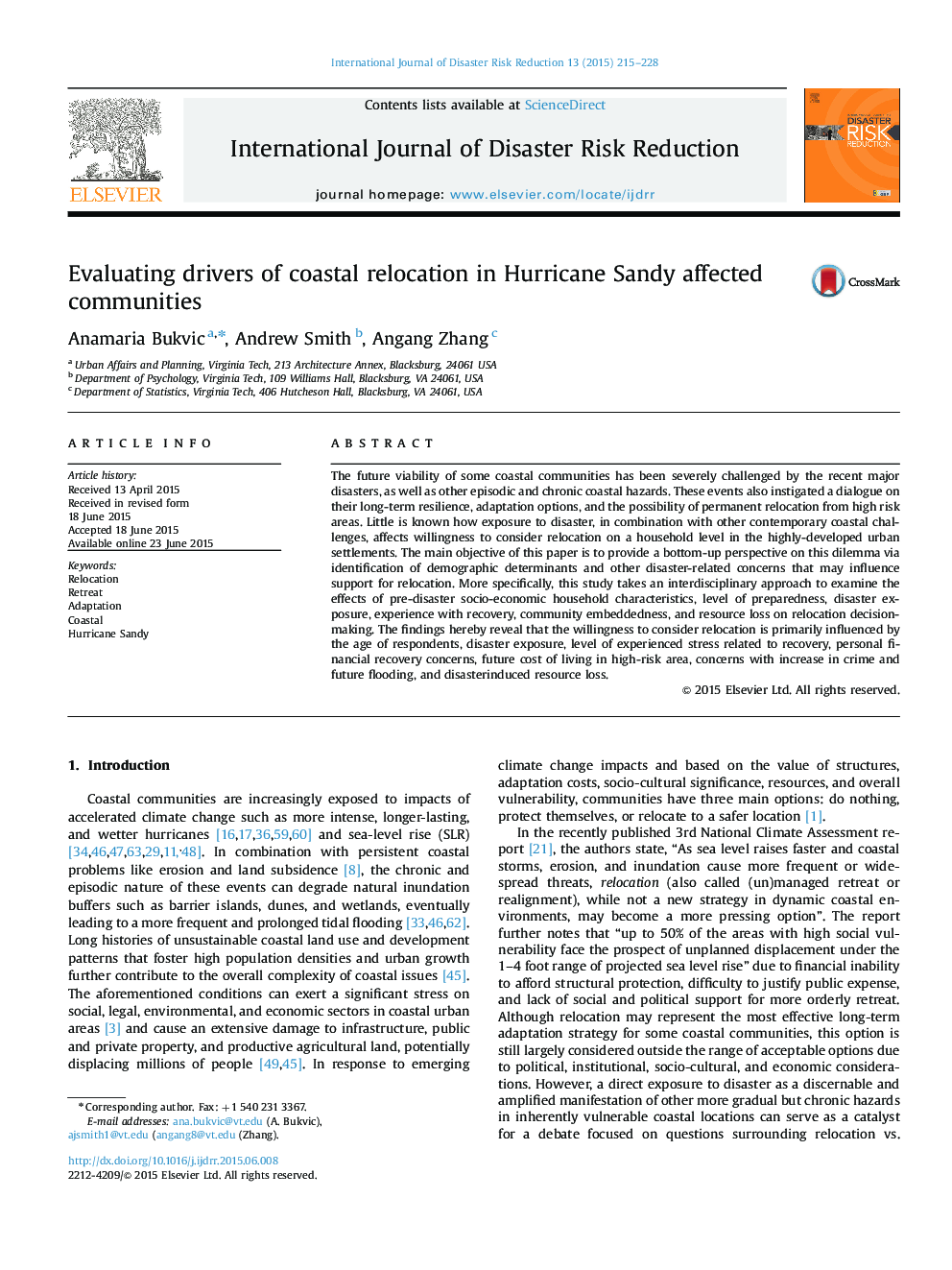| Article ID | Journal | Published Year | Pages | File Type |
|---|---|---|---|---|
| 7473167 | International Journal of Disaster Risk Reduction | 2015 | 14 Pages |
Abstract
The future viability of some coastal communities has been severely challenged by the recent major disasters, as well as other episodic and chronic coastal hazards. These events also instigated a dialogue on their long-term resilience, adaptation options, and the possibility of permanent relocation from high risk areas. Little is known how exposure to disaster, in combination with other contemporary coastal challenges, affects willingness to consider relocation on a household level in the highly-developed urban settlements. The main objective of this paper is to provide a bottom-up perspective on this dilemma via identification of demographic determinants and other disaster-related concerns that may influence support for relocation. More specifically, this study takes an interdisciplinary approach to examine the effects of pre-disaster socio-economic household characteristics, level of preparedness, disaster exposure, experience with recovery, community embeddedness, and resource loss on relocation decision-making. The findings hereby reveal that the willingness to consider relocation is primarily influenced by the age of respondents, disaster exposure, level of experienced stress related to recovery, personal financial recovery concerns, future cost of living in high-risk area, concerns with increase in crime and future flooding, and disasterinduced resource loss.
Related Topics
Physical Sciences and Engineering
Earth and Planetary Sciences
Geophysics
Authors
Anamaria Bukvic, Andrew Smith, Angang Zhang,
